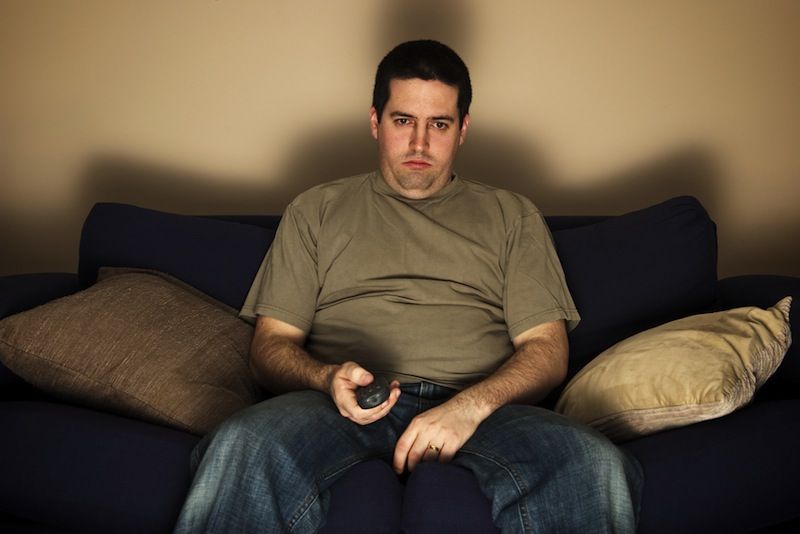Shutdown Science: Furloughed Workers Feel the Burden of Boredom

Jennifer Wade is bored. A program director for the National Science Foundation, Wade normally spends her workdays managing grant proposals and wrangling the reviewers who will decide what research gets federal funding.
But with the federal government shutdown pending a Congressional budget agreement, Wade is stuck at home — and she's not enjoying it.
"I think nine days is the length of time it takes for anxiety to dissipate, anger to move to a background steady state, and boredom to just take over," Wade told LiveScience. "I literally paced, a little bit ago, to keep myself from lying on the couch. Now I'm walking to get a coffee just to give myself something to do."
Boredom may not be the most pressing consequence of a shutdown that is blocking medical research and locking down government aid to the needy, but the emotion isn't as trivial as it might seem, researchers say. In fact, boredom has been linked to depression, anxiety, binge eating, drug and alcohol abuse, work accidents, and yes, even death. But until recently, boredom had been largely overlooked by science, leaving much about this all-too-common emotion a mystery. [The 17 Weirdest Effects of the Government Shutdown]
Studying boredom
Until recently, scientists hadn't even settled on a definition of boredom that went beyond simply describing the feeling. Boredom hadn't been an especially hot topic in psychology, said John Eastwood, a psychologist at York University in Toronto who researches the emotion.
"I've talked with a fair number of people about the research on boredom, and there's always kind of the awkward lame jokes about studying boredom people have to make," Eastwood told LiveScience. Boredom is also both common and culturally disdained, he added — it's seen as a character flaw and is perhaps less compelling for research as a result. [5 Bad Habits You Can Still Quit]
Sign up for the Live Science daily newsletter now
Get the world’s most fascinating discoveries delivered straight to your inbox.
Whatever the reasons for overlooking boredom, psychology is now taking a closer look. In 2012, Eastwood and colleagues from the University of Guelph and the University of Waterloo proposed a scientific definition of the emotion: Boredom, they wrote in the journal Perspectives on Psychological Science, is "the aversive experience of wanting, but being unable, to engage in satisfying activity."
The researchers also created a scale to measure the state of boredom. (In social science research, "I'm soooo bored," doesn't quite work to quantify the feeling.)
Finally, scientists are becoming more adept at eliciting boredom in the lab. Eastwood and his colleagues bore their study participants by making them watch language instruction videos in the language they speak fluently.
"It's just mind-numbing," Eastwood said. "You want to claw your eyes out."
The researchers also rig the situation to elicit more boredom by telling participants the videos are shorter than they really are, creating the illusion of time dragging.
Errors, effort and anger
Anecdotally, people will do almost anything to avoid boredom. During her furlough from work, Wade resorted to cleaning out the garage and helping a friend move.
Theresa Bryner, a Census Bureau IT specialist, is equally struggling.
"I feel useless," Bryner told LiveScience. She thought she'd get all her closets cleaned out while stuck at home, she said, but instead she got depressed and "really did nothing."
The push-pull of boredom is the intense desire to make it go away, mixed with apathy that makes it hard to do anything. This conundrum may stem from the cognitive burdens boredom puts on the human brain. Mustering attention for a task takes work, especially when that task is boring. A bored brain seems especially attuned to its own failure to pay attention: In a 2010 study published in the journal Personality and Social Psychology Bulletin, researchers found that when people lost themselves in pleasant, as opposed to unpleasant, daydreams, they found the task at hand more boring. The gap between the things people want to be doing and the thing they're actually doing may make boredom feel more extreme.
Psychologists call the state of a happy, smoothly working brain "flow." In a state of flow, attention is focused, information processing goes off without a hitch, and the person feels happy and absorbed. [10 Surprising Facts About the Human Brain]
Boredom may be flow's cognitive opposite. While hours can pass in a wink for a person in a state of flow, time stretches on endlessly for a bored brain. And the extra effort burned by a bored brain trying to stay on task — paying attention to a boring video, for example — can cause negative feelings. The struggle to maintain attention in the face of so much dullness may explain why people who are bored feel both lethargic and restless: Studies suggest that heart rate varies from slower than normal to faster than normal during boredom, perhaps indicating the struggle between an external lack of stimulation and an internal desire to stay focused.
Boredom’s consequences
A little boredom is unlikely to cause major problems — after all, a 2003 survey by the National Center on Addiction and Substance Abuse revealed that 91 percent of North American youth experience boredom at some point (no word on what's keeping the remaining 9 percent so busy).
Still, too much boredom may be bad news, said Eastwood. In one 2010 study detailed in the International Journal of Epidemiology, researchers tracked deaths among Londoners who were surveyed in the 1980s about their boredom levels, following them until 2009. The bored died sooner than people who rarely felt bored.
The findings don't mean you can literally be bored to death — probably. One possible explanation is that bored people take poor care of themselves, engaging in stimulating-but-unhealthy behaviors, such as overeating, drinking or doing drugs, Eastwood said. Very preliminary lab work suggests this indirect link may be the case. People made to feel bored in the lab are more likely to behave in risky or impulsive ways in computer games, he said.
"Researchers are really now trying to drill down into understanding, does boredom indeed cause these problems?" Eastwood said.
At least one group already knows the havoc boredom can cause: teachers. Lia Daniels, an educational psychologist at the University of Alberta, said that thousands of studies have been done on anxiety in the classroom. But studies show that boredom, which has received far less scientific scrutiny, actually has a worse effect on grades.
"When you have students in your classroom who are bored, they're not students who are disruptive," Daniels told LiveScience. They may doodle all day without a teacher noticing, at least until they flunk the test.
Some people are more prone to boredom than others, but boredom can also be the result of the environment, Daniels said. Any situation where people feel like they lack control and don't value the task at hand is likely to lead to boredom.
Government workers affected by the shutdown are likely experiencing that perfect storm, she said.
"If I'm locked out [of work]," Daniels said, "what is important to me is being devalued by someone else."
Editor's Note: Theresa Bryner is the sister of LiveScience managing editor Jeanna Bryner.
Follow Stephanie Pappas on Twitter and Google+. Follow us @livescience, Facebook & Google+. Original article on LiveScience.

Stephanie Pappas is a contributing writer for Live Science, covering topics ranging from geoscience to archaeology to the human brain and behavior. She was previously a senior writer for Live Science but is now a freelancer based in Denver, Colorado, and regularly contributes to Scientific American and The Monitor, the monthly magazine of the American Psychological Association. Stephanie received a bachelor's degree in psychology from the University of South Carolina and a graduate certificate in science communication from the University of California, Santa Cruz.











